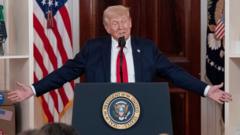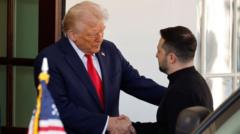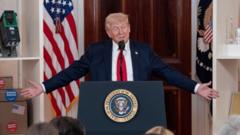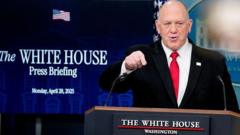President Trump, in his first few months of his second term, adopts a transactional and exploitative approach to foreign policy, shaking the foundations of longstanding alliances and international systems.
Trump’s Second Term: A New Era of Foreign Policy Disruption

Trump’s Second Term: A New Era of Foreign Policy Disruption
Analyzing President Trump's controversial and unpredictable strategy in international relations during his initial 100 days of his second term.
In the early hours of a Munich hotel room, a senior aide to Vice President JD Vance found himself in an unusual situation, attempting to negotiate a critical minerals deal with a reluctant Ukrainian official. This late-night push was emblematic of President Donald J. Trump’s second-term strategy—an unpredictable and transactional foreign policy that has left allies and adversaries alike grappling with its implications.
The urgency surrounding this minerals extraction deal highlighted the new aggressive posture the United States is taking under Trump’s leadership. Once the aide finally secured the deal on a subsequent date, it illustrated how the Trump administration operates—demanding swift compliance on what could be seen as exploitative terms, contrasting sharply with traditional diplomatic practices.
The first 100 days of Trump’s second term have been marked by significant disruptions. Long-established international alliances, particularly NATO, have been met with skepticism, while trade negotiations have swung towards a more aggressive stance, eliciting retaliatory measures from countries like China. The latter, feeling secure in its dominance over specific supply chains, has responded strongly to the Trump administration’s tariff hikes, raising concerns over escalating trade tensions.
European allies are on edge, speculating on potentially large withdrawals of American troops from their territories—a move that could alter the balance of power and security arrangements established post-World War II. As the U.S. wades deeper into this transactional waters, observers wonder how these changes will shape not only international relations but also domestic perceptions of America's role on the global stage. This period of uncertainty may redefine the landscape of diplomacy and alliances for years to come.






















